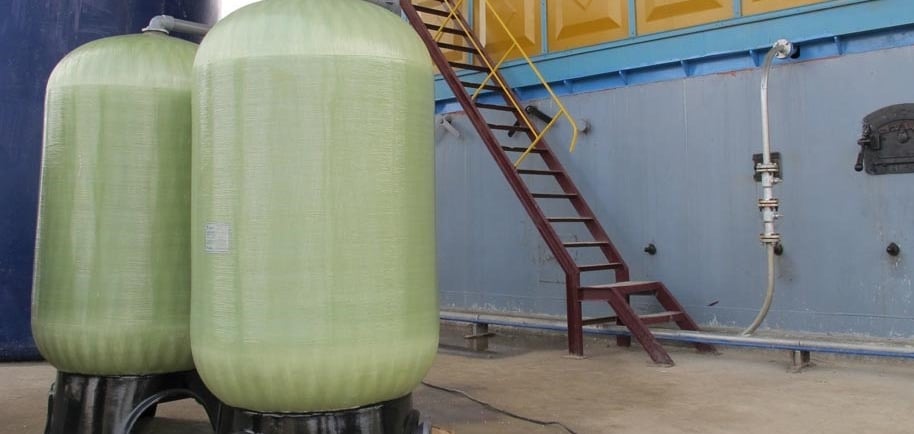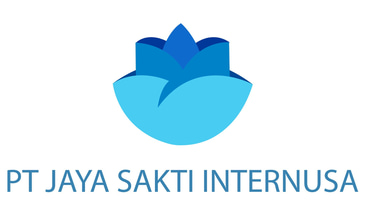The Advantages of Using Fiber Material Products in Water Treatment Systems


Water treatment has become an essential part of modern industries, buildings, and communities. With rising concerns about water scarcity, pollution, and sustainability, businesses are under increasing pressure to invest in systems that are not only effective but also efficient and environmentally responsible. One of the most important innovations supporting this shift is the use of fiber material products in water treatment systems.
Fiber materials, often in the form of reinforced plastics or composites, offer significant advantages over traditional materials like metal or concrete. They are lighter, more resistant to corrosion, and designed to provide long-lasting durability with minimal maintenance. For companies seeking high performance without excessive costs, fiber-based solutions are quickly becoming the preferred choice.
As an established provider, PT Jaya Sakti Internusa incorporates fiber material products into a wide range of water treatment solutions, ensuring clients gain maximum efficiency, reliability, and value for their investment.
Why Fiber Materials Are Transforming Water Treatment
Traditional materials such as steel and concrete have long been used in water tanks, cooling towers, and treatment facilities. However, they often come with drawbacks: susceptibility to corrosion, heavy weight, higher installation costs, and a tendency to require more frequent repairs. Fiber material products solve many of these issues.
Fiber-reinforced composites are inherently resistant to rust, chemical exposure, and biological growth. This makes them particularly suited for environments where water quality is critical, and where systems are exposed to challenging conditions. Their lightweight design also simplifies transport and installation, reducing time and labor costs.
The transformation brought by fiber materials is not just technical—it also supports broader sustainability goals. By extending the lifespan of water treatment infrastructure and lowering maintenance requirements, fiber products reduce waste, resource consumption, and operational disruptions. This combination of durability and efficiency makes them ideal for modern water management strategies.
Durability and Corrosion Resistance
One of the most significant benefits of fiber material products is their exceptional durability. Unlike steel, which can corrode when exposed to water or chemicals, fiber-reinforced composites maintain their structural integrity for decades. This makes them particularly valuable in industrial environments where exposure to aggressive substances is common.
In water treatment systems, corrosion is more than an inconvenience—it can compromise water quality, damage infrastructure, and lead to costly downtime. By using fiber products, industries can eliminate these risks and ensure consistent system performance. For example, fiber-reinforced tanks and pipes are able to withstand harsh treatment chemicals, fluctuating water temperatures, and constant moisture without degradation.
Moreover, the smooth surface of fiber composites reduces scaling and biological growth, lowering the need for frequent cleaning and preventing contamination. This directly translates to safer, cleaner, and more reliable water treatment outcomes.
Cost-Effectiveness and Long-Term Savings
While initial investment costs are often a concern for businesses, fiber material products offer significant savings in the long run. Their low maintenance requirements and extended service life reduce the need for frequent repairs or replacements. This makes them a cost-effective option compared to traditional materials that may require constant upkeep.
Installation costs are also lower because fiber products are lighter and easier to handle. Reduced transport expenses and faster setup mean businesses can achieve operational readiness sooner, with fewer labor resources. Over time, these savings compound, resulting in a far more economical solution.
The cost advantages go beyond financial savings. By minimizing downtime and ensuring uninterrupted water treatment operations, fiber products help industries maintain productivity and compliance with environmental regulations. This reliability adds value that extends far beyond the purchase price.
Energy Efficiency and Lightweight Design
Another advantage of fiber material products in water treatment is their lightweight nature. Compared to metal components, fiber products require less energy to transport and install. This not only reduces logistical costs but also supports energy efficiency across the entire supply chain.
For large-scale water treatment projects, the difference in weight can be dramatic. Lighter tanks, cooling towers, and piping systems allow for quicker installation without heavy-duty equipment. In turn, this reduces fuel consumption, labor time, and carbon emissions.
Energy efficiency also extends into system operation. Because fiber materials resist scaling and fouling, water flows more smoothly through pipes and filters. This reduces the energy needed to pump and circulate water, improving overall system performance and lowering operational costs.
Supporting Sustainable Industrial Practices
Sustainability is no longer an option—it is a necessity for industries facing stricter regulations and public expectations. Fiber material products align closely with these goals by reducing environmental impact throughout their lifecycle.
Firstly, their long service life minimizes waste generation, as fewer replacements are needed compared to metal or concrete alternatives. Secondly, their resistance to chemicals and corrosion ensures that hazardous leaks or structural failures are less likely to occur. Finally, their energy-efficient properties help industries reduce carbon footprints while maintaining reliable operations.
According to United Nations Environment Programme (UNEP), sustainable water management is one of the most critical elements of global environmental protection. By adopting fiber material products, industries are taking a meaningful step toward aligning with international sustainability frameworks while securing long-term operational resilience.
Versatility Across Applications
Fiber material products are not limited to one type of water treatment application. They can be found in a wide range of systems, including:
Water storage tanks – offering leak-proof, lightweight, and corrosion-resistant solutions.
Cooling towers – ensuring efficient cooling with lower maintenance demands.
Filtration systems – providing strong, non-reactive components that improve water flow.
Wastewater treatment plants – resisting chemical and biological exposure for long-term use.
This versatility means that businesses across different industries—from manufacturing and energy to hospitality and healthcare—can benefit from fiber-based products. Each application takes advantage of the same core strengths: durability, efficiency, and cost-effectiveness.
By offering a comprehensive range of fiber solutions, PT Jaya Sakti Internusa helps clients optimize their water treatment systems across all stages of operation.
Reduced Maintenance and Improved Reliability
Maintenance is a major factor in determining the long-term efficiency of water treatment systems. Fiber material products significantly reduce the frequency and complexity of maintenance tasks. Their smooth, non-porous surfaces are less prone to buildup, meaning cleaning is quicker and less costly.
Because fiber products resist corrosion and chemical attack, they do not require protective coatings or constant inspections for rust damage. This reduces both direct maintenance expenses and the risk of unexpected failures. As a result, businesses can rely on more predictable operating costs and consistent water treatment performance.
Improved reliability also has a direct impact on compliance. By minimizing system disruptions, fiber products help industries meet regulatory requirements and avoid penalties associated with poor water management.
PT Jaya Sakti Internusa: Delivering Complete Fiber-Based Solutions
Established in 1998, PT Jaya Sakti Internusa has built a reputation as a trusted provider of integrated water treatment solutions. The company incorporates fiber material products into its systems to deliver high-quality, efficient, and sustainable results.
Beyond supplying equipment, PT Jaya Sakti Internusa offers end-to-end services, including water analysis, system design, installation, monitoring, and maintenance. Their approach ensures that fiber-based solutions are not only durable but also fully integrated into a client’s operations, maximizing both performance and long-term value.
By combining technical expertise, international certifications, and a commitment to sustainability, PT Jaya Sakti Internusa ensures clients receive reliable solutions that stand the test of time.
Conclusion
The advantages of using fiber material products in water treatment systems are undeniable. From durability and corrosion resistance to cost savings, energy efficiency, and sustainability, these products offer a comprehensive range of benefits that make them superior to traditional materials.
For industries facing increasing challenges related to water quality, resource management, and environmental responsibility, fiber products provide a practical and future-ready solution. By working with experienced providers like PT Jaya Sakti Internusa, businesses can ensure that their water treatment infrastructure is efficient, reliable, and aligned with long-term sustainability goals.
Investing in fiber material products is not just a technical decision—it is a strategic move toward operational excellence and environmental stewardship.
